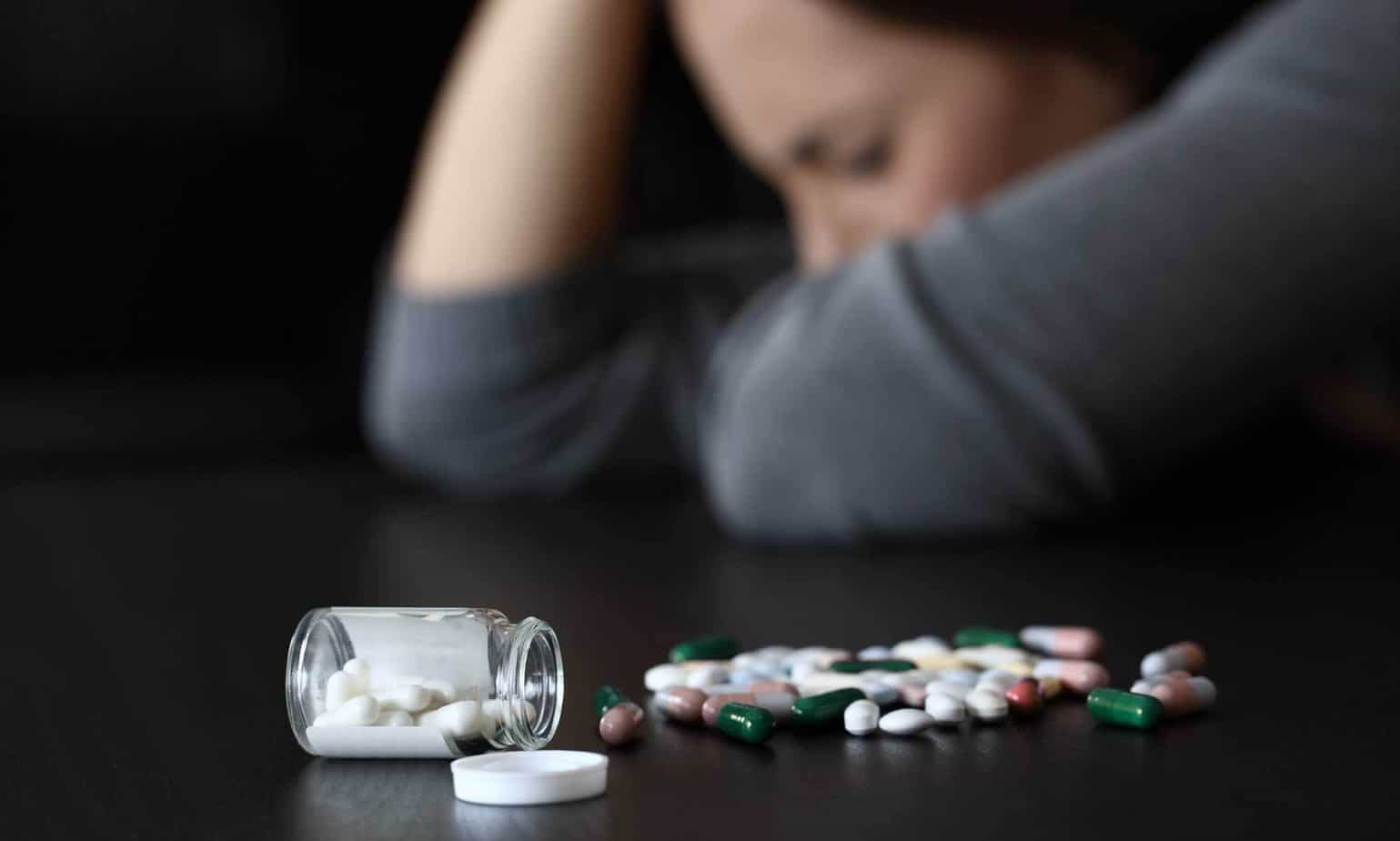Self-care is an essential component of addiction recovery, playing a vital role in maintaining sobriety and promoting overall well-being. In this article, we asked Thuan Nguyen, certified Yoga and Reiki teacher and Wellness Manager at Mountainside, to talk about the importance of self-care. We will also provide practical tips and techniques for practicing self-care in daily life.
Understanding the Significance of Self-Care
In addiction recovery, self-care encompasses taking deliberate actions to preserve and enhance one’s physical, mental, emotional, and spiritual health. The abuse of drugs or alcohol takes a toll on every aspect of a person’s well-being, leaving them in need of restoration and rejuvenation.
Nguyen writes, “You can’t give away what you don’t have. One of my favorite quotes is from Jack Kornfield. He writes, ‘If the compassion you give to others does not include compassion for yourself, then your compassion is incomplete.’”
Putting an end to substance abuse is the first step toward practicing self-care. Conversely, practicing self-care is one of the keys to addiction recovery. By committing to a sober lifestyle, individuals can begin to prioritize their own health and well-being. Self-care serves as a foundation for building a healthier and more fulfilling life in recovery.
The Benefits of Self-Care in Addiction Recovery
Self-care plays a crucial role in several areas of addiction recovery. By embracing self-care practices, individuals can experience many benefits.
Improved Mental Health
In addiction recovery, individuals often struggle with mental health issues such as anxiety, depression, and stress. Engaging in self-care activities can help manage and alleviate these symptoms. Some examples of self-care practices like meditation, journaling, and seeking professional therapy can provide individuals with the tools to process their emotions, challenge negative thoughts, and develop healthier coping mechanisms.
Reduced Stress and Anxiety
Stress is a significant trigger for relapse in addiction recovery. Engaging in self-care activities such as exercise, deep breathing exercises, and practicing mindfulness can help reduce stress levels and promote a sense of calm. These activities release endorphins, the body’s natural mood-boosting chemicals, and provide a healthy outlet for stress management.
Enhanced Physical Health
Substance abuse takes a toll on physical health, often leading to neglect of basic self-care practices. Together, fitness and self-care enhance addiction recovery. Engaging in regular exercise, maintaining a balanced diet, getting adequate sleep, and practicing personal hygiene are all essential components of taking care of yourself physically. These practices help restore the body’s natural balance, boost energy levels, and strengthen the immune system.
Improved Emotional Wellbeing
In addiction recovery, individuals may struggle with emotional sobriety. Practicing emotional self-care involves acknowledging and honoring one’s feelings, learning healthy coping mechanisms, and seeking support from trusted individuals. By addressing emotional needs and developing effective strategies for managing emotions, individuals can enhance their emotional well-being and reduce the risk of relapse.
Strengthened Spirituality
Spiritual self-care is an integral aspect of addiction recovery, regardless of one’s religious beliefs. Engaging in practices such as meditation, prayer, spending time in nature, or joining a spiritual community can help individuals cultivate a sense of purpose, connection, and inner peace. Nurturing one’s spirituality can provide a solid foundation for long-term recovery.
Incorporating Self-Care into Daily Life
Practicing self-care requires intentionality and consistency. Nguyen also writes, “Life is hard and we never know what it’s going to throw at us next. Having a regular self-care program in place can help prepare us for these unexpected moments. We can fake being okay for just so long but when the big, tough moments present themselves, we’ll see what we have cultivated inside of us.”
Here are some practical tips for incorporating self-care strategies into addiction recovery and daily life:
Physical Self-Care
- Engage in regular exercise, such as walking, jogging, or yoga, to promote physical wellbeing and release endorphins.
- Maintain a balanced diet that includes nutritious foods to fuel your body and support overall health.
- Prioritize getting enough restful sleep each night to ensure optimal physical functioning and mental clarity.
- Pay attention to personal hygiene, as taking care of your physical appearance can positively impact self-esteem and overall wellbeing.
Mental and Emotional Self-Care
In addition to physical self-care, you must also take care of your mind and emotions:
- Set aside time for activities that bring you joy and promote mental wellbeing, such as listening to music, reading, or pursuing a hobby.
- Practice mindfulness and meditation to cultivate a sense of calm and self-awareness.
- Seek professional therapy or counseling to address any underlying mental health issues and develop effective coping strategies.
- Foster a positive support network by connecting with supportive friends, attending support group meetings, or joining recovery communities.
Spiritual Self-Care
No matter your expression of spirituality, it is a vital part of addiction recovery, and you need to cultivate your spiritual life as well for continued success.
- Explore spiritual practices that resonate with you, such as meditation, prayer, or spending time in nature.
- Reflect on your values, beliefs, and purpose in life to cultivate a sense of meaning and connection.
- Engage in activities that promote personal growth and self-reflection, such as journaling or reading spiritual literature.
- Seek out opportunities to engage in acts of kindness or service to others, as these actions can foster a sense of fulfillment and purpose.
Making Self-Care a Priority
You can’t pour from an empty cup.
Nguyen says, “The biggest misconception about self-care is probably that it is selfish.”
Taking time for your health is essential for long-term recovery. It requires a commitment to prioritize one’s own well-being and invest time and effort into self-care practices. By consistently engaging in self-care activities, those in sobriety can enhance their overall quality of life, strengthen their recovery journey, and reduce the risk of relapse.
What Are Simple Self-Care Examples You Can Do at Home?
There are days when you won’t find the time to do yoga. You might forget to meditate. Maybe you’re having a bad day. In these cases, you can stop, regroup, and try some of the tips suggested by Thuan Nguyen below to keep yourself grounded and prioritize yourself and your sobriety.
- First thing in the morning, avoid immediately checking work emails or logging onto social media until you finish your self-care routine. You don’t want to be “doomscrolling” at seven in the morning, caught up in anxieties. The first few minutes of being awake will set the mood for the day.
- Even if it feels forced, express gratitude for waking up in the morning and for this precious life. Gratitude has been shown to rewire the brain.
- Wake up a little early each morning for some quiet time. It could be a 5-minute meditation to start the day. It could also be time set aside for a daily chore like washing the dishes in silence while focusing on the sounds of the water, your hands on the sponge, and the circular movements against plates and bowls.
- Incorporate some gentle stretches into your day. Your body has been asleep for, hopefully, between six and eight hours, so the energy inside is stagnant. When your energy is stagnant, you feel sluggish and lazy. Slowly moving the body will wake up your qi, the body’s internal energy current. Find some Qigong or gentle yoga videos off YouTube. It just might become more important than your morning cup of coffee.
- Do you like setting a theme for the day? Find a book that has a short reading for each day of the year. It will give you daily topics and meditations to think about throughout the day.
- During the day, connect with at least one person who builds you up and is a positive force in your life. Connection, connection, connection. We are not in this world alone.
- Remember when you were a kid and certain activities you did seemed to make time and space melt away? Rediscover one of the joys in your life and start doing it again.
Remember, self-care is a personal journey, and what works for one individual may not work for another. It is important to experiment with different practices, listen to your own needs, and adapt your self-care routine accordingly. By embracing self-care in addiction recovery, individuals can nurture their physical, mental, emotional, and spiritual well-being, leading to a more fulfilling and sustainable recovery journey.
If you or a loved one is struggling with addiction, Mountainside can help.
Click here or call (888) 833-4676 to speak with one of our addiction treatment experts.

 By
By 






